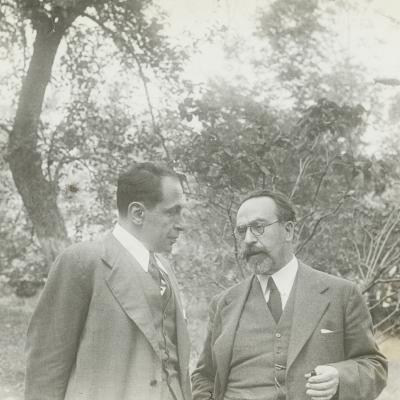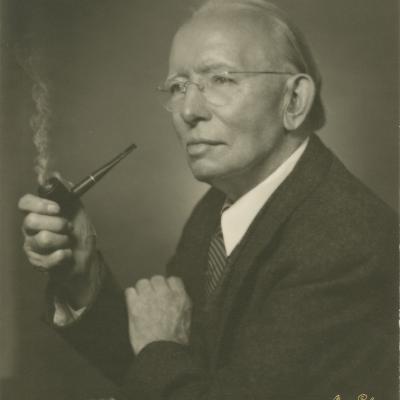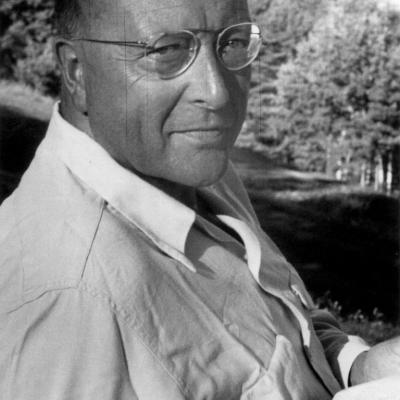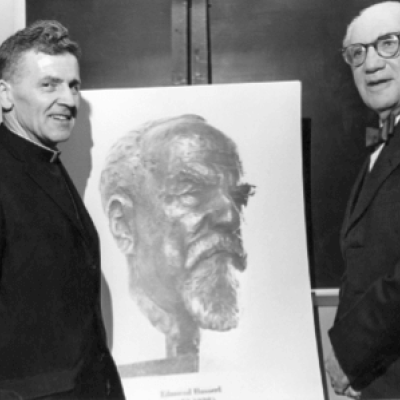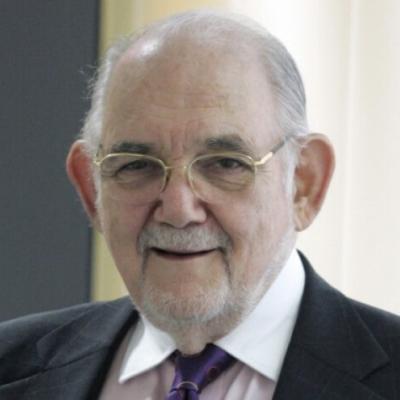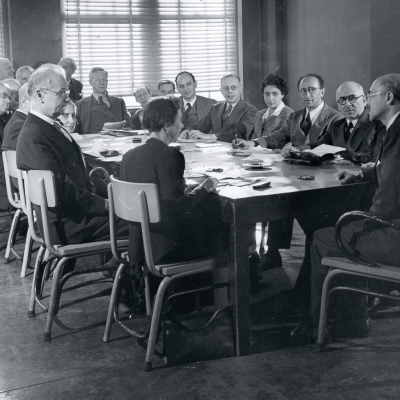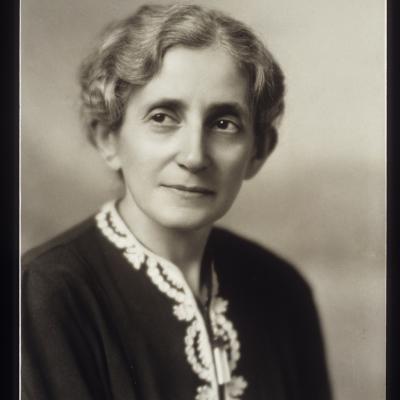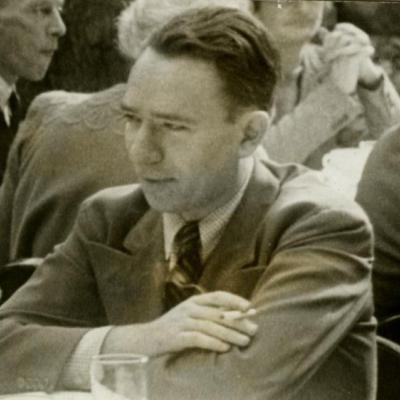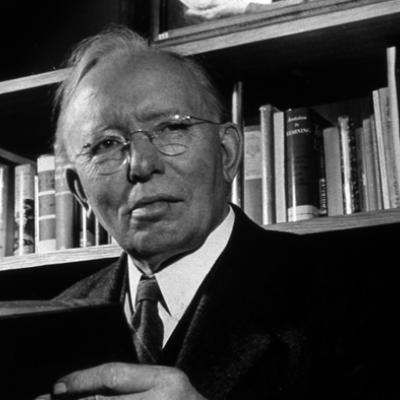Category: University in Exile
Origins of the Rural Social Structure
The big land owners who dominated the German army and bureaucracy believed that the state was obliged to protect their privileges. Most of the agricultural population, still influenced by feudal traditions, accepted the leadership of this minority group.
Italian Refugee Scholars at The New School: A Collective Profile
This blog post was written in response to information gathering resulting from the visit of an international researcher. Here in the New School Archives and Special Collections, we assist researchers from around the world on a weekly and sometimes daily basis.
Alvin Johnson, Deliver Us from Dogma
If someone told you that students from the New School are very open-minded, that would not be surprising.
Hans Simons
Hans Simons may best be known as a successful president of the New School rather than as a scholar. But his scholarly and administrative work in politics was typical of many of the refugee scholars who formed the University in Exile.
The Archives of Edmund Husserl in the United States
By the late 1930s, the Graduate Faculty of Political and Social Science at the New School for Social Research was a center for the study of Husserlian phenomenology in United States.
Julien Studley
Julien Studley has been a crucial benefactor and leader at the New School for the last thirty years. Like many refugee scholars who found a home at the New School, Studley left Europe as a young man and eventually found a home here as well.
University in Exile
Alvin Johnson was the president of the New York New School for Social Research when, in 1933, he responded with alacrity to the growing crisis in Europe. The previous year, Alvin Johnson had traveled to Europe and had witnessed a potential need for a haven for academics and scholars.
Frieda Wunderlich
Frieda Wunderlich (b. Berlin, November 8, 1894—d. East Orange, NJ, December 9, 1965) was the only woman in the original group of scholars that formed the University-in- Exile at The New School in 1933.
Hans Speier
Hans Speier was a sociologist and founder of the University in Exile. You can read more about him here.
The Phenomenological Approach in Social Science
The term “phenomenology” is today used in at least two undoubtedly different meanings—always disregarding Hegel’s Phenomenology of the Mind to which I have not devoted times sufficient for understanding it.
My Last Meeting with Heidegger in Rome, 1936
In 1936, during my stay in Rome, Heidegger gave a lecture on Holderlin at the German-Italian Culture Institute. Afterwords, he accompanied me to our apartment and was visibly taken aback by the poverty of our furnishings.
Intellectuals in Exile
List of European scholars and artists helped by the New School of Social Research between 1922 and 1945
University in Exile, 75th Anniversary, TCDS Bulletin (Fall 2008)
The University in Exile’s founding in 1933 as a haven for ousted professors from Nazi Germany was embedded in the earnest democratic tradition of the original New School for Social Research, founded in 1919 in protest of the suppression of free speech at Columbia University.
The Trend in World Economies
Public discussion of the economic future of the world is in full swing. After a period of gestation devoted to sweeping generalities and utopian blueprints for a world economy in the literal sense, we have now entered the realistic phase of planning for the immediate post-war period.
Peace Economics
As long as friends of democracy, throughout the world, are not all killed or confined to Hitler’s concentration camps, there is one thing they cannot afford. They cannot afford to believe in his ultimate and lasting victory.
Strata of Experience
Discussions concerning the relation between science and philosophy are still likely to be carried on in terms of the controversy as to whether all knowledge springs from (or has its source in) experience.
The Historian and Truth
History is a science. It seeks the “truth.” But science is in quest of laws; history is content with describing the particular. What kind of particular? What is in the particular?
Crisis, History and the Image of Man
In his address at the 200th convocation of the University of Chicago, June 11, 1940, President Hutchins invited American youth to reexamine the principles which make life worth living.
Concept and Theory Formation in the Social Sciences
The title of my paper refers intentionally to that of a Symposium held in December, 1952, at the annual meeting of the American Philosophical Association. Ernest Nagel and Carl G.
The New Institute of World Affairs
To contribute to a diagnosis of the present state of world affairs will be the primary task of the new Institute of World Affairs, 66 Fifth Avenue, New York.
Class Structure and "Total War"
Wars are the products of the civilization in which they are waged. Their specific character is dependent upon the specific organization of society in times of peace.
6 Cardinal Virtues of a Nazi: A New Type of Man
In briefly outlining the educational program of Hitler, it is not our intention to take issue with that program as such. The reader is merely to get an idea what kind of values and virtues Hitler deemed the most desirable in a young German.
The Origins of Modern Science: A New Interpretation
Since the heroic age of Pierre Duhem, to whose amazing energy and learning we owe the revelation of medieval science, much work has been devoted to the study of that subject.
The Evolution of the Consumer
In the beginning, on the sixth day of His work, God created man-as a consumer.
The Orientation of Agricultural Economics
When I chose this subject I had no ambition to shoulder the burden of a critical survey of agricultural economics today—years after the founding of our Association. Others have found that such an undertaking requires an extensive committee, large funds, and years of work.
Alvin Johnson at Eighty
A whole literature of citations, eulogies, testimonials, of addresses, editorials and reviews has grown around the work and record of Alvin Johnson. How can one add anything without being repetitious?
Alvin Johnson
Alvin Saunders Johnson (December 18, 1874 – June 7, 1971) was an American economist and a co-founder and first director of The New School.
Forming Impressions of Personality
We look at a person and immediately a certain impression of his character forms itself in us. A glance, a few spoken words are sufficient to tell us a story about a highly complex matter. We know that such impressions form with remarkable rapidity and with great ease.
